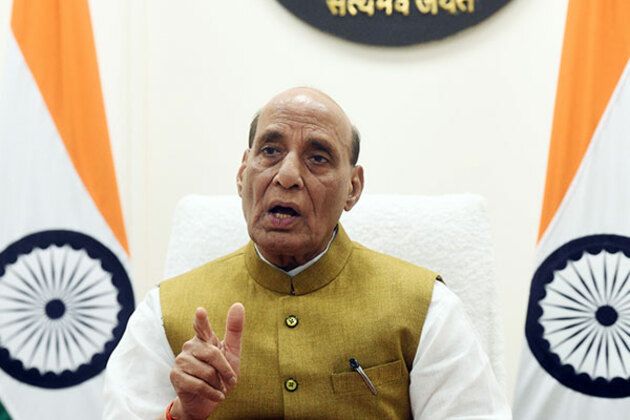Targeted policies can help decarbonize Canada one home at a time
The Conversation
25 Jan 2023, 04:08 GMT+10

Be it through the food we eat, vehicle we use or way we live, we use fossil fuels and emit greenhouse gases in various activities in our daily lives. We need to reduce emissions across sectors, starting with our homes. This requires ambitious and quick action.
As we face more and more climate change-induced weather extremes, we heavily rely on the use of home heating and cooling infrastructure. The emissions from space heating and cooling in homes represent almost one-fifth of global greenhouse gas emissions.
In Canada, home emissions account for around six per cent of emissions, largely because most homes rely on natural gas-fired or oil-powered furnaces and boilers, although additional emissions are associated with air conditioning.
Canada should decrease emissions from residential buildings by 50 per cent by 2030 and achieve a net-zero emissions building stock by 2050 to meet its climate targets. Our recent study found that the first step towards this goal is using targeted policies that encourage the use of low-carbon technology in our homes, like heat pumps.
Some provinces take the lead on decarbonization policy
Across levels of Canadian governments, many types of policies have been designed to encourage switching from fossil fuel-based to low-carbon technologies.
These include subsidies or loans for switching to low-carbon technologies, educational programs and adopting economy-wide policies such as carbon pricing, regulations for building emissions and renewable natural gas mandates.
For example, the province of British Columbia offers its residents subsidies for switching away from fossil fuel-based heating systems. It also offers bonuses for performing additional low-carbon retrofits.
Prince Edward Island offers an interest-free loan for up to $30,000 to residents who upgrade the current heating system in their homes to a cleaner, more efficient low-carbon system that reduces their carbon footprint.
Canada recently updated the carbon price, in line with its planned yearly increases in stringency.
While such efforts to decarbonize buildings are increasing, current policies seem to be insufficient for Canada to meet its greenhouse gas reduction commitments.
Five factors that influence Canadians to decarbonize
Heat pumps can significantly decarbonize Canada's homes because they are powered by electricity, and not fossil fuels. They also provide similarly efficient space cooling with the same system, and may be able to reduce consumer energy costs.
But despite many policies that incentivize their adoption, these heat pumps are used in only around five per cent of home heating systems in Canada. Why is adoption so low?
Using data from a nationally representative sample of 3,138 Canadian homeowners, we explored the main motivators for heat pump adoption in our study.
We found that while one-third of Canadian homeowners express willingness to adopt heat pumps, they are generally unaware of existing government efforts or policies in place to support its adoption. Only five per cent of our respondents were able to name such policies from memory. This policy awareness was higher in British Columbia, and for heat pump subsidies and carbon taxes.
However, policy awareness, we found, is a weak positive predictor of willingness to adopt heat pumps. We found that homeowners are more willing to adopt a heat pump if they
1) believe it can effectively heat and cool their home,
2) think it can improve air quality and help fight climate change,
3) are interested in technology,
4) support policies that encourage heat pump adoption, and
5) don't perceive heat pumps as being too expensive or inconvenient to install.
The top-down approach
So, instead of focusing their efforts on educating homeowners about existing policies, our research suggests that policymakers should aim to increase homeowners' confidence in low-carbon infrastructure like heat pumps. They must highlight the effectiveness and environmental benefits of these technologies.
Policies can also be designed to help remove barriers of high financial and inconvenience costs during heat pump installation. For example, subsidy amounts could cover inconvenience costs and more funding could be directed towards training contractors in such installations.
Considering these drivers and barriers while tailoring policy design and structure will help augment the adoption of such low-carbon technologies, and by extension home decarbonization.
While this holds true in Canada, at both the national and provincial levels, it can also be replicated in other jurisdictions with similar climates or policy regimes such as Scandinavia, the United Kingdom and the northern United States.
Authors: Ekaterina Rhodes - Assistant Professor, School of Public Administration, University of Victoria | Meghan Corbett - Master's student, Public Administration, University of Victoria 
 Share
Share
 Tweet
Tweet
 Share
Share
 Flip
Flip
 Email
Email
Watch latest videos
Subscribe and Follow
Get a daily dose of Broadcast Communications news through our daily email, its complimentary and keeps you fully up to date with world and business news as well.
News RELEASES
Publish news of your business, community or sports group, personnel appointments, major event and more by submitting a news release to Broadcast Communications.
More InformationBusiness
SectionWall Street extends rally, Standard and Poor's 500 hits new high
NEW YORK, New York - U.S. stock markets closed firmly in positive territory to start the week Monday, with the S&P 500 and Dow Jones...
Canadian tax on US tech giants dropped after Trump fury
WASHINGTON, D.C.: On Friday, President Donald Trump announced that he was halting trade discussions with Canada due to its decision...
Trump-backed crypto project gets $100 million boost from UAE fund
LONDON, U.K.: A little-known investment fund based in the United Arab Emirates has emerged as the most prominent public backer of U.S....
DIY weight-loss drug trend surges amid high prices, low access
SAN FRANCISCO, California: Across the U.S., a growing number of people are taking obesity treatment into their own hands — literally....
Apple allows outside payment links under EU pressure
SAN FRANCISCO, California: Under pressure from European regulators, Apple has revamped its App Store policies in the EU, introducing...
Euro, pound surge as U.S. rate cut odds grow after Powell hint
NEW YORK CITY, New York: The U.S. dollar tumbled this week, hitting its lowest levels since 2021 against the euro, British pound, and...
Sectors - Broadcasting
SectionSBA participates in World News Media Conference 2025 in Poland
SHARJAH, 7th May, 2025 (WAM) -- The Sharjah Broadcasting Authority (SBA) recently took part in the 76th World News Media Congress,...
Uttarakhand CM Dhami participates in Space Conference 2025 focused on role of Himalayan states
Dehradun (Uttarakhand) [India], June 30 (ANI): Uttarakhand Chief Minister Pushkar Singh Dhami on Monday participated in the Space Technology...
Update: China's non-manufacturing PMI at 50.5 in June
BEIJING, June 30 (Xinhua) -- The purchasing managers' index (PMI) for China's non-manufacturing sector came in at 50.5 in June, up...
Union Ministers of State to be stationed at BJP headquarters six days a week for worker outreach
By Aashique Hussain New Delhi [India], June 28 (ANI): In a new initiative aimed at strengthening grassroots communication and coordination,...
"Darkest chapter in Indian democracy": Rajnath Singh on 50th anniversary of Emergency
New Delhi [India], June 25 (ANI): As the country marked the 50th anniversary of the Emergency imposed by then Prime Minister Indira...
Rajat Sharma recalls "dark night" of Emergency, his efforts to bring out cyclostyled newspaper to keep people informed
Noida (Uttar Pradesh) [India], June 25 (ANI): Senior journalist Rajat Sharma, who was jailed for 10 months during the Emergency, recalled...













